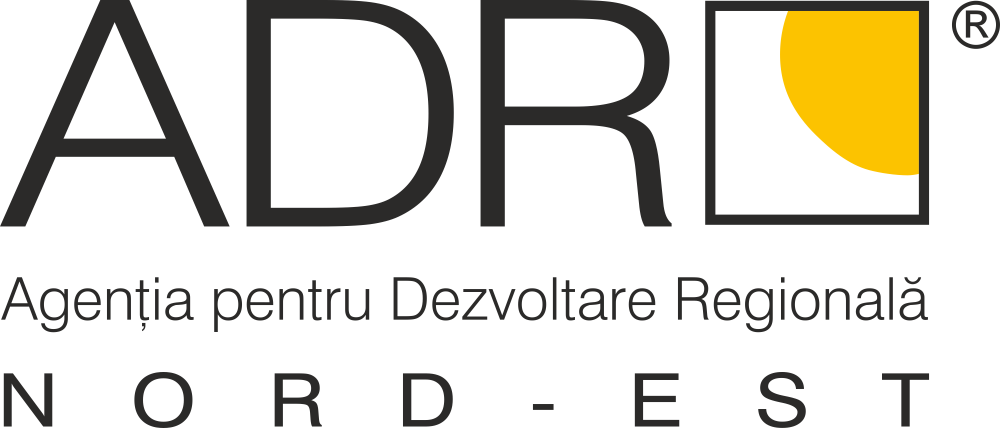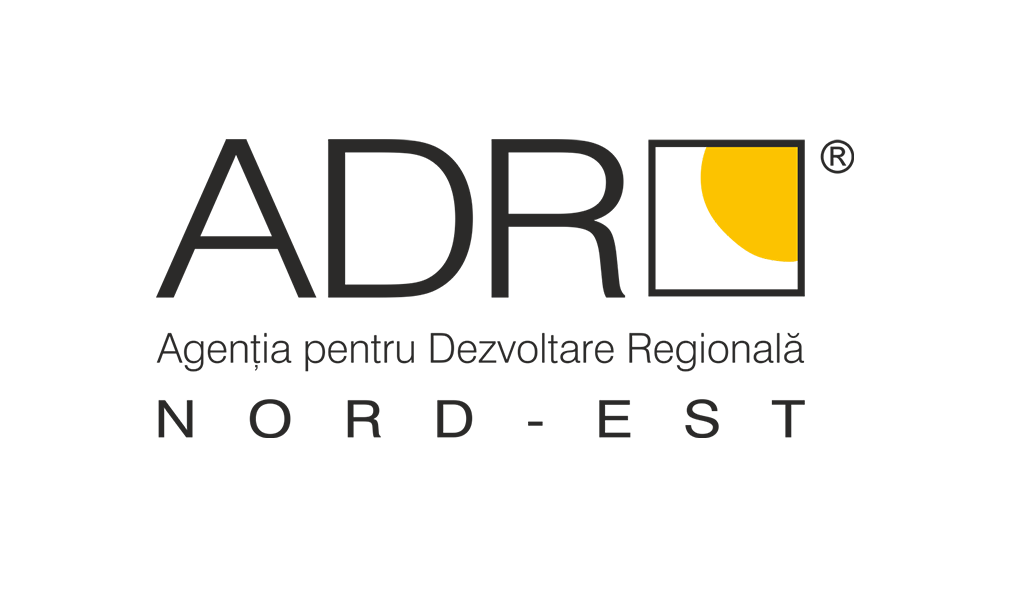Reporter REGIO: episode 13
Entrepreneurial spirit packaged in a business for the future
Success stories, possible with the support of Regio Nord-Est 2014-2020
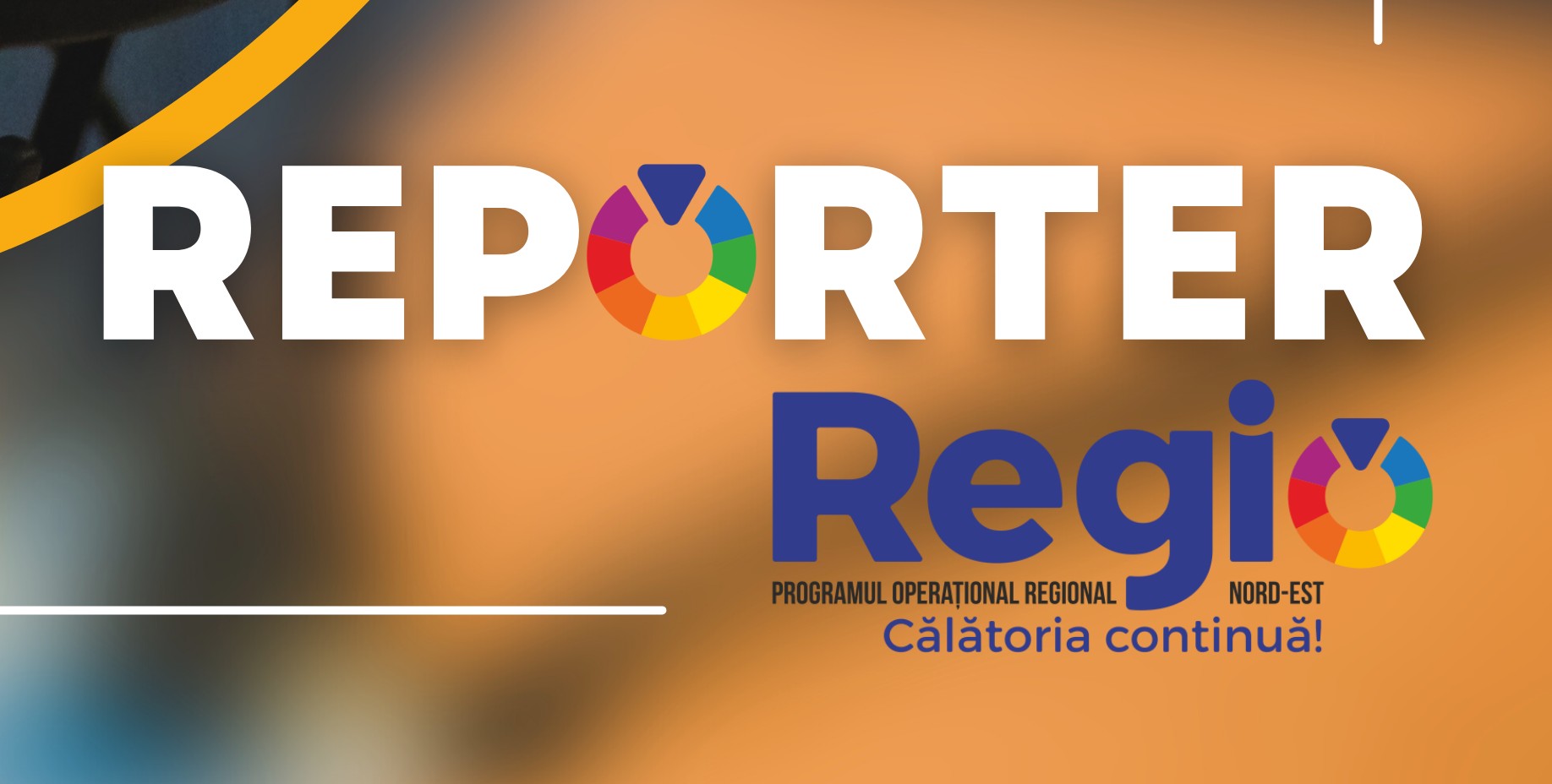
He saw Iasi city as an exotic adventure, from the desire to try something new as a young high school graduate from Craiova city. He preferred to go to college away from home and try his luck in entrepreneurship since he was a student. Now, Tiberiu Stoian runs Exonia Holding, a company that he founded in 2003, which produces biodegradable paper packaging, a company that benefited from a non-refundable 2014-2020 ROP financing of almost one million euros. He sees entrepreneurship as an electrocardiogram, with ups and downs, and the funding obtained through Regio has given him an increase in productivity and turnover that he only hoped for a few years ago.
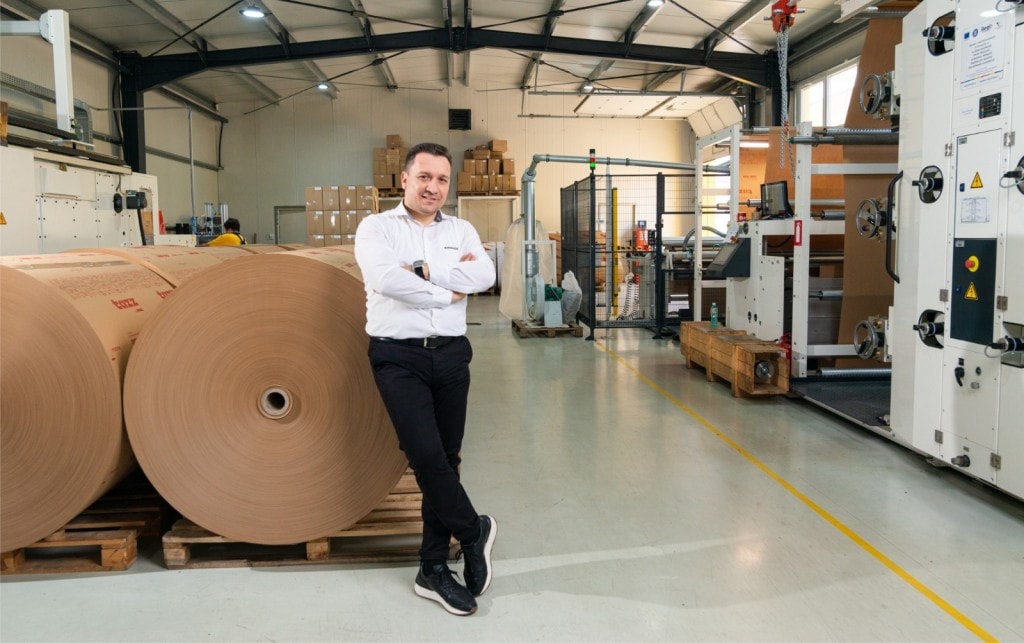
A business started in the student dormitory
An Oltenian in the capital of Moldova, as he likes to say, Tiberiu Stoian wanted to be a mini-explorer after finishing high school and chose Iași city also out of a desire to prove that he can manage far from home. Because he didn’t want to accept money from his parents during college, he decided to get a job. He tried several jobs, not necessarily spectacular, then started working with one of the greatest food and alcohol distribution companies in the area, where he had a lot to learn. At the moment when the shareholders of that company decided to exit the Romanian market due to legislative instability, Tiberiu had to make his first important decision: to accept a position within some companies that had been his clients or to start a self-employed activity. „Back then it wasn’t really easy to start a business, especially since it overlapped with my financial situation, which wasn’t great. However, I decided to give it a try. I was in my second year of college and wanted to try something in the IT distribution area. With the money I saved, I managed to buy a good computer, and a printer”. Because he wanted to recover at least part of the costs of this first investment, Tiberiu started to do technical editing and listing services of the diploma theses of his older colleagues. This business was doing great and he recruited a few more dorm mates to whom he outsourced some of the work he couldn’t seem to finish. After 3 weeks, the idea of bankruptcy sprouted for the first time: a new cartridge costs as much as a printer. „I learned my first lesson then, as a beginner entrepreneur: that you always have to analyze all your costs very carefully”, recalls Tiberiu. But he discovered, in a short time, at a profile fair in Bucharest, a manufacturer from South Korea who had invented some kits for refilling printer cartridges. That was a business saver. He refilled them, then invested in a banner that he hung on the window of the dorm room for the visibility of the services he offered, and 3 years later, Tiberiu ended up owning a network of 17 office supplies stores in as many counties. He was now a national distributor of computers, printers, and copying systems.

A good marketing idea: personalized bags
Tiberiu Stoian wanted to offer personalized bags to all the clients that bought from his stores, 50 thousand bags, that’s about how many he used then. If they had been personalized and used in 17 counties, they would have represented an impactful and fairly cheap way of advertising. He started looking for suppliers to put his ads on the bags. He found a local supplier, but the quality was low. Then he found a supplier in Italy, but because Romania was not a member of the European Union back then, a shipment could take up to a month. So he turned to another supplier, this time from Turkey, a country with better transport relations. The effect of the personalized bags was quickly seen so that some of the customers wanted to have such bags as well. And they asked Tiberiu for more bags. This time, for them. “After seeing this kind of request, I thought it was a good opportunity, especially since I knew how complicated it is to find a good supplier. Therefore, in 2003, we founded Exonia, the current Exonia packaging factory, which at the time was called Reklama Shop. Later, I decided that this area of personalized packaging is a big area, which is why I no longer need to diversify and sell all kinds of other promotional materials„, says the entrepreneur.

From plastic to paper was just a project through ROP
In 2010, he bought a company from Iași that produced packaging and all the machinery he owned. It wasn’t a big company, but there were very experienced people, people who are still working at Exonia Holding nowadays. He set up a plastic packaging factory, and a year later he purchased the entire equipment park of the plastics plant, Moldoplast from Iași. These actions increased the production capacity. During all this time, Tiberiu was also interested in the decisions of the European Union, the measures being implemented within the Member States, and priority areas. „One of these priority areas, I noticed would be the one related to the production of sustainable packaging. Ever since then, there have been discussions of green energy and I considered it to be the future. This is the reason why I started to pay close attention to the technologies required for the production of biodegradable packaging, especially from paper. I read almost everything that could be read about this field of activity, I visited many factories and profile exhibitions where I had the opportunity to consult with specialists in the field. I like that when I start to do something, to be well informed about what I am going to do, to increase my chances of successfully implementing a project„, says Tiberiu Stoian.

The production of biodegradable paper products with high-performance machines required very large investments. In 2016, Exonia had low profitability, and some investments of several million euros were difficult to cover. The entrepreneur found a financing solution in the banking system, but it was not enough and he started looking for other sources of co-financing. „We already knew what it means to produce low-performance equipment, so we targeted top equipment manufacturers. With the resources I had, plus a bank credit, I would have been able to buy equipment made in China or worse or cheaper. But in 2018, a call was launched on ROP 2014-2020, for SMEs, on 2.2, a call that also had a component on printing areas, and that is exactly what I was doing. It fit perfectly, I was eligible for the purchase of a high-performance and complex flexographic printing technology line„.

The pandemic and funds, launching ramp
He wrote the project with the help of a consultant, it was approved and signed in 2019, and in 2020, just as the machines left the manufacturer’s factory, the lockdown was decreed and the borders were blocked. „As much as we were excited that the machines were coming, we panicked that they couldn’t enter the country. We even asked for the help of the authorities to try to offer us a solution. The people were quite understanding and we were able to bring into the country both the machines and the foreign specialists we needed to put them into operation. Like an electrocardiogram, it was. We got excited when we put them into operation and then we cried because another decision of the Government blocked the activity of shopping centers and we found that we no longer had anyone to produce customized bags for. It seemed like an insurmountable problem because we didn’t even have an estimate of how long it would take to resolve the situation. In the meantime, we also hired about 15 people to work with the new line. It was a very difficult period„, remembers Tiberiu. But the pulse of entrepreneurship would rise again. The reduced mobility imposed by the authorities has led to a significant increase in home delivery orders, especially for food products. And the food products required some bags in which to be delivered. Personalized. The pandemic and the implementation of the project through the 2014-2020 ROP were for Exonia the second launch ramp, as the demand for customized bags increased overnight. The factory’s maximum production capacity was reached in a very short time. Although they initially predicted a catastrophic situation for 2020, Exonia ended the year with a 40% increase in turnover, and 2021 will end on the plus side with 130%. „In all this time, we have accumulated a lot of experience in using this high-performance technological line, and it mattered enormously that we chose a more expensive and good quality one. During this period, we also started to develop some innovations that helped us to work with this technological line at a higher speed than the speed provided in their technical book, we increased the productivity a lot„. Also through the Regio grant project, they purchased a server and implemented an ERP application within the company, which helps them enormously and which they continuously improve with other modules.

In continuous growth since the implementation of the project
2022 ended on a positive note, with a 30% increase in turnover, also as a result of increased productivity thanks to the line purchased through European funds. As planned, Tiberiu Stoian wants to multiply this business recipe, increase the production and processing capacity, and expand the premises for production. „Now we are analyzing a mix of financing solutions that will be based on bank loans, we are waiting to see financing lines with a grant component that could be addressed to producers. We also intend to access the capital market, towards the end of the year there are very good premises to be the first company producing biodegradable paper bags listed on the Bucharest Stock Exchange„.

Tiberiu Stoian still owns the company established in the dormitory, 24 years ago. He chose to focus on the production of biodegradable bags because it is an area that he likes, he is passionate about, it is a profitable field and, he says, this is how he manages to get closer to the mission he set out for himself even before implementing the project through the ROP, that of making a change in people’s mentality regarding the environment and the idea of being more responsible. „More than 50% of the paper we use in the production of the bags is 100% recycled. I became more responsible as I became a father of 3, and I think about their future and what the environment will look like in some time. Through the products we manufacture now, we contribute to the protection of the environment and we are constantly working to educate the public about sustainable consumption.”
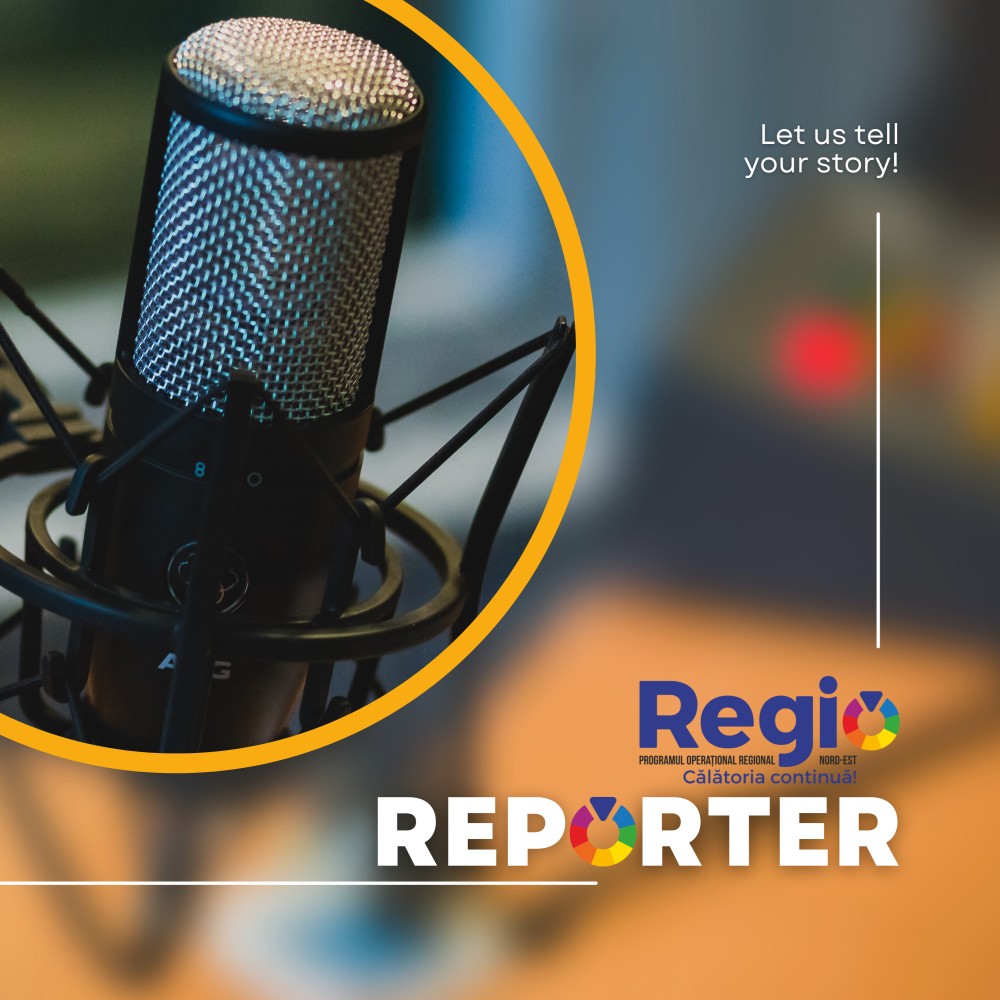
Reporter REGIO is a new North-East RDA initiative, which focuses on promoting the successful projects of our beneficiaries, projects that have managed to stand out by bringing added value and impact to the community. At a time when negative news predominates, we offer you beautiful but true stories for reading, meant to strengthen the belief that „it is possible”! Be part of the story!
Are you a Regio beneficiary? Let us tell you the story.
Contact us for details at info@adrnordest.ro


 INTERES PUBLIC
INTERES PUBLIC